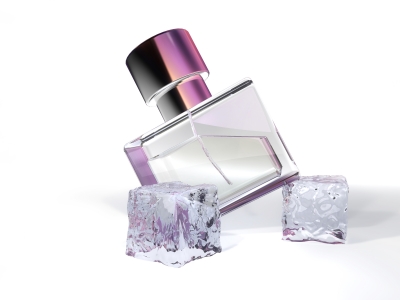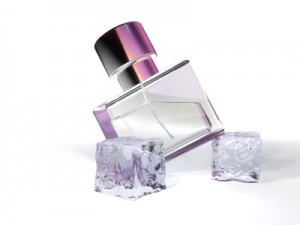
 A few weeks ago, our friends at Women’s Voices for the Earth (WVE) urged corporations to list the ingredients used in their fragrances. Since most companies simply put “fragrance” on their labels, there’s no way we can find out what chemicals were used to create that fragrance-and there could be hundreds of them.
A few weeks ago, our friends at Women’s Voices for the Earth (WVE) urged corporations to list the ingredients used in their fragrances. Since most companies simply put “fragrance” on their labels, there’s no way we can find out what chemicals were used to create that fragrance-and there could be hundreds of them.
Now, the Campaign for Safe Cosmetics has commissioned an independent lab to test 17 fragrance products. You might be surprised to learn what they found.
Hidden Fragrance Chemicals Could Be Potentially Dangerous
According to the test results, the 17 products contained, on average:
- Fourteen “secret” chemicals not listed on the label
- Ten “sensitizing” chemicals associated with allergic reactions
- Four hormone-disrupting chemicals linked to health effects like thyroid problems and even cancer
Because manufacturers are allowed to protect “trade secret” fragrance formulations, they can keep these chemicals hidden from consumers, meaning that we just don’t know what we may be applying to our skin and inhaling into our sinuses on a daily basis.
Fragrances Associated with Allergies
Synthetic fragrances are now considered one of the top five causes of allergic reactions in North America, associated with problems like itching, rashes, eye irritation, and breathing problems. According to a 2002 study, fragrance chemicals caused allergic reactions in over 8 percent of those people studied, with patients experiencing symptoms like contact eczema on the hands, face, and eyelids.
A 2009 study noted that roughly one in five adults is believed to suffer from contact allergies to one or more chemicals, with perfume being one of the most common sources of symptoms. Researchers found that some of these allergens react with the air or even with skin enzymes to cause allergic reactions, and concluded, “more perfumes than previously believed can be activated into allergens, and more studies should be done to increase knowledge with the field and thus reduce the number of eczema cases.”
An article in the Daily Mail (September 17, 2012) noted that manufacturers are using more and more fragrance in more and more products, from candles to bin liners to car fresheners, and even scented socks. Yet some experts suggest that nearly a third of us suffer from adverse health effects after being exposed to these scents.
“Allergies are on the increase,” said Dr. Susannah Baron, consultant dermatologist at Kent & Canterbury hospital, “and the amount of perfumed products is also on the rise. Fragrance allergy can show up as contact dermatitis in the site a perfumed product is applied, or as a flare-up of existing eczema. It can be a real problem.”
Fragrances Associated with Hormone Disruption
Because some fragrance chemicals can act like hormones in the body, they can disrupt the natural action of our own hormones, causing health problems. The Campaign for Safe Cosmetics found several potential hormone-disrupting chemicals in the products they tested, again raising questions about the safety of these products.
A study done last year tested over 200 common household products, including soaps, lotions, cleaners, sunscreens, shaving creams, and perfumes, and found that most contained hormone-disrupting chemicals. None were listed on the product labels, however.
“These results show we are exposed to a wide range of chemicals of concern in everyday products,” said study author Robin Dodson, “and the chemicals aren’t always listed on the labels….It seems these chemicals are not being adequately tested before being put on the shelf.”
The Campaign noted that they found 12 ingredients with the potential to act as hormone disruptors in the products they tested.
Protect Yourself and Your Family
It’s time to stop putting our health at risk for no reason. Here are some tips to help protect yourself and your family from hidden, potentially harmful fragrance ingredients:
- Choose products with no added fragrance.
- Check your products against the Skin Deep Database to find out how it’s rated.
- Read labels! Some products labeled as “fragrance-free” may still have hidden fragrance chemicals.
- Better yet-buy from conscientious companies that care about what they put in their products.
- Cut back. Even if you’re attached to a certain fragrance, cut back on your use of other types of fragrances, like air fresheners and synthetically scented candles. (Tip: Read my post on choosing safer candles.)
You can also sign the Campaign’s letter to celebrities to encourage them to take a stand against toxic chemicals in fragrance products.
How do you protect yourself from potentially dangerous chemical fragrances? Please share your tips.
Picture courtesy Salvatore Vuono, via freedigitalphotos.net.
Sources
Temesvari E, et al., “Multicentre study of fragrance allergy in Hungary. Immediate and late type reactions,” Contact Dermatitis, 2002 June; 46(6):325-30, http://www.ncbi.nlm.nih.gov/pubmed/12190620.
University of Gothenburg (2009, February 11). Even Natural Perfumes May Cause Allergies. ScienceDaily. Retrieved May 27, 2013, from http://www.sciencedaily.com /releases/2009/02/090203110549.htm.
Victoria Lambert, “Is your scent making you ill? Today’s obsession with perfuming everything from candles to bin liners could be to blame,” Daily Mail, September 17, 2012, http://www.dailymail.co.uk/health/article-2204745/Is-scent-making-ill-Todays-obsession-perfuming-candles-bin-liners-blame.html.
Jenifer Goodwin, “Hormone-Disrupting Chemicals Found in Many Household Products: Study,” HealthDay, March 8, 2012, http://health.usnews.com/health-news/news/articles/2012/03/08/hormone-disrupting-chemicals-found-in-many-household-products-study.

